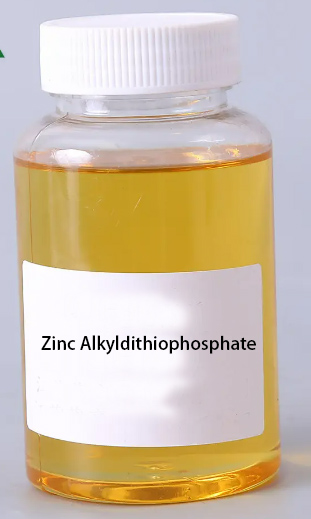zinc additive for oil
Zinc Additive in Oil and How It Helps
Zinc additives for oil, often referred to as zinc dialkyldithiophosphate (ZDDP) or zinc phosphates, are designed to create a protective coating on the metal parts within your engine. This specialized coating acts as an anti-wear barrier, effectively guarding against friction and wear, even under high-pressure conditions. As a result, your engine can operate smoothly and efficiently, regardless of the demanding conditions it faces.
Zinc additives for oil are commonly found as an organic compound that contains both zinc and phosphorus. These additives are commonly recognized as ZDDP or ZDTP. ZDDP, in particular, holds a prominent place as the most prevalent lube oil additive. It’s important to note that when you encounter “zinc” in motor oil discussions, it’s often referring to a compound known as Zinc Dialkyl Dithiophosphates (ZDDP), responsible for preventing metal corrosion and providing excellent anti-wear properties.
During the crucial break-in period of an engine, it’s essential to provide the right care and protection to ensure its optimal performance down the line. This is where zinc additives for oil shine. Zinc additive for oil proves its effectiveness in safeguarding camshaft lifters and valve trains during this critical phase. Specifically tailored for flat tappet camshafts, zinc additive for oil delivers the necessary amount of ZDDP to treat six quarts of engine oil. This translates to an ideal ratio of 3000-3200 parts per million (ppm), creating the perfect conditions for a proper engine break-in.
ZDDP is not your typical oil additive – it’s a versatile compound compatible with both conventional and synthetic oils designed for automotive use. When dealing with synthetic oils, the best zinc additive for motor oil is often referred to as Zinc Dialkyldithiophosphate. On the other hand, the best zinc additive for engine oil formulations uses Zinc Dialkylphosphate as the primary zinc additive. Regardless of the oil type you choose, the protective qualities of zinc additive for engine, motor and diesel oil remain constant, ensuring optimal engine performance and longevity.
Zinc additive for oil | Zinc additive for motor oil | Zinc additive for engine oil
What Is High-Zinc Motor Oil?
Zinc additives for are the secret ingredients that elevate high-zinc motor oil to its exceptional status. These additives come into action when your engine faces friction, a natural consequence of its operation. Friction generates heat and can lead to increased strain on the engine’s components. This is where zinc additive for engine oil and zinc additives for motor oil step in as the unsung heroes, forming a protective layer on metal surfaces and acting as a buffer against the damaging effects of friction.
For those who own older vehicles, high-zinc motor oil is often a preferred choice. Why? Well, as engines age, they tend to experience more pronounced friction-related issues. High-zinc motor oil becomes a reliable companion in these situations, alleviating the stress caused by friction and heat. The zinc additive for engine oil and zinc additive for motor oil within this type of oil work tirelessly to minimize wear and tear, thereby extending the life of the engine and maintaining its performance levels.
By opting for high-zinc motor oil, you’re making a conscious decision to provide your engine with an extra layer of protection. This choice can lead to several advantages, including reduced engine wear, enhanced durability, and improved overall efficiency. High-zinc motor oil’s ability to combat friction effectively ensures that your engine can run smoothly even in demanding conditions, which is particularly valuable for older vehicles that might be more prone to issues arising from wear.
Zinc additives for motor oil | zinc additive for diesel oil
What is Zinc, anyway?
Zinc is an elemental metal that possesses intriguing characteristics that set it apart. At room temperature, zinc additive for oil holds a slightly brittle quality and showcases a distinct blue-silvery hue once oxidation is removed. However, its significance extends far beyond its appearance. The applications of zinc span across a wide spectrum, encompassing industries ranging from metal manufacturing to rubber production and even medicinal applications.
The utilization of zinc is remarkably diverse, with approximately three-fourths of its consumption attributed to its role as a metal. A primary application involves its use as a protective coating for iron and steel surfaces, preventing corrosion and lending durability – a process commonly known as galvanization. Beyond this, zinc’s versatility shines through in its capacity to serve as an alloying element. zinc additive for oil plays a pivotal role in the creation of bronze and brass, imparting distinct characteristics to these alloys. Additionally, zinc finds its way into the realm of die casting alloys, contributing to their unique properties, and is even utilized in rolled zinc forms.
Zinc additive for oil | Zinc additive for synthetic oil
What Does Zinc Have to Do with Motor Oil?
Within the context of motor oil, zinc steps into the limelight as a defender against the potentially damaging consequences of friction. As engine parts move and interact, the possibility of metal-to-metal contact arises, which can lead to erosion, degradation, and inefficiency. Here, the significance of zinc additive for engine oil and zinc additive for motor oil. By orchestrating the formation of a protective film, zinc acts as a barrier between these moving components, effectively reducing the chances of wear and tear.
The protective film that zinc creates within your engine is akin to a shield against an invisible enemy – friction. As the engine operates, the presence of this film ensures that vital components glide smoothly rather than grinding against each other. This not only enhances the overall performance of your engine but also extends its lifespan by minimizing the wear that can accumulate over time.
Zinc’s ability to form this protective film stems from its unique chemical properties.zinc additive for oil reacts with heat and pressure, effectively transforming into a layer that adheres to the metal surfaces. This layer then serves as a resilient barrier, combating the abrasive effects of metal-to-metal contact. In essence, zinc’s chemical prowess aligns perfectly with the demands of an engine’s dynamic environment, making it a fundamental component in the formulation of effective motor oils.
Why Use Zinc Replacement Additives? | zinc additive for oil
When it comes to older vehicles equipped with engines featuring flat tappet lifters, the utilization of zinc replacement additives takes on a crucial role. Ensuring that your engine oil contains zinc or a suitable substitute additive becomes a vital step in preserving the integrity of your engine’s components. This proactive measure is specifically aimed at preventing premature wear and tear in vital areas like the lifters and camshaft.
Older vehicles often boast engines equipped with flat tappet lifters, a design that has distinct lubrication requirements. These lifters, which experience constant contact and sliding movement, demand a lubricating agent that can handle the load without succumbing to wear-induced degradation. This is where zinc replacement additives step in to bridge the gap, offering the necessary protection and reducing the risk of early deterioration.
The utilization of zinc or its replacement additive in your engine oil isn’t just a preventative measure; it’s a shield against the effects of constant friction. The flat tappet lifters and camshaft components are prone to experiencing accelerated wear when left unprotected. The inclusion of zinc additives serves as a protective barrier, mitigating the friction-induced damage that can lead to premature wear and compromised engine performance.
How much ZINC do you need in engine oils? | zinc additive for oil
The question of how much zinc additive for engine oil requires isn’t one-size-fits-all; it hinges on the age of your engine and the way you put it to use. However, regardless of these factors, incorporating a zinc oil additive can undoubtedly enhance wear protection for virtually any type of engine.
The ideal zinc content in your engine oil isn’t a fixed number, but rather a consideration that takes into account the unique characteristics of your engine and its usage patterns. Factors such as engine age and the demands you place on zinc additive for oil play a role in determining the appropriate amount of zinc additive for oil.
It’s worth noting that zinc additive for motor oil content are capped at around 800 parts per million (ppm). However, this doesn’t necessarily encompass the full spectrum of engine needs. Zinc oil additive for older engines particularly increases as engines age and face different stressors. Following the initial break-in period, the recommendation shifts toward utilizing oils containing at least 1,000 ppm of zinc dialkyl dithiophosphate especially for flat-tappet engines | zinc additive for oil.
How Much ZDDP is Enough? How Much is Too Much?
The quest for the right amount of zinc additive for oil, specifically in the form of zinc dialkyl dithiophosphate (ZDDP), brings us to a delicate equilibrium. Us here at Triplechem, we suggests a sweet spot ranging between 1000 and 1400 parts per million of ZDDP for optimal results. Striking this balance is pivotal, as too little ZDDP leaves your engine vulnerable, while excessive amounts can introduce unintended consequences that escalate wear and tear.
This optimal range is meticulously calculated to provide your engine with the anti-wear benefits it deserves. By infusing your oil with this carefully measured amount of ZDDP | zinc additive for oil, you’re ensuring that your engine’s components are shielded against the abrasive forces of friction, promoting longevity and sustained performance.
Allowing ZDDP| zinc additive for oil levels to dip below the recommended threshold can result in a critical lack of anti-wear defense. Inadequate protection can leave your engine’s components susceptible to the detrimental effects of friction, leading to accelerated wear and compromised performance. It’s this vulnerability that underscores the importance of ensuring your oil contains a sufficient amount of ZDDP.
Potential Downsides to Zinc Additives | zinc additive for oil
One notable drawback tied to zinc-based additives revolves around their potential to induce corrosion in specific metals. When oil with elevated zinc levels interacts with certain metals, particularly those known as “yellow metals,” a chemical reaction can occur that leads to the corrosion of metal surfaces. This process stems from the additive’s aggressive interaction with these metals, compromising their integrity over time.
Beyond the realm of metals, the environmental footprint of zinc additives is also a point of consideration. While these additives provide essential protection, their potential environmental impact must be evaluated. Careful management and disposal are necessary to ensure that the benefits of zinc additives do not come at the cost of environmental well-being.


